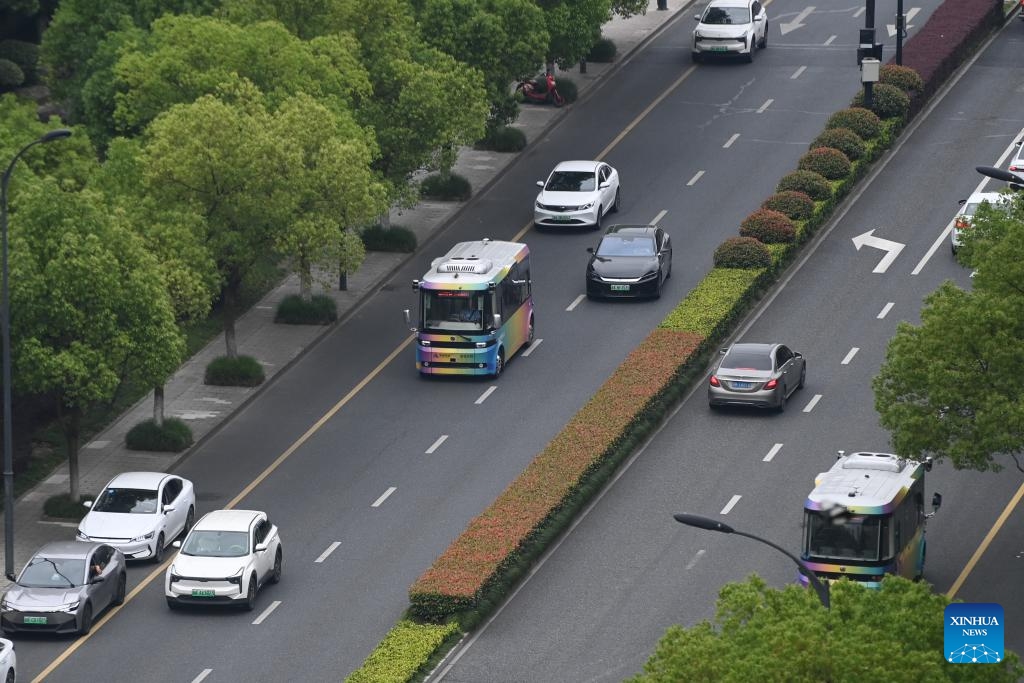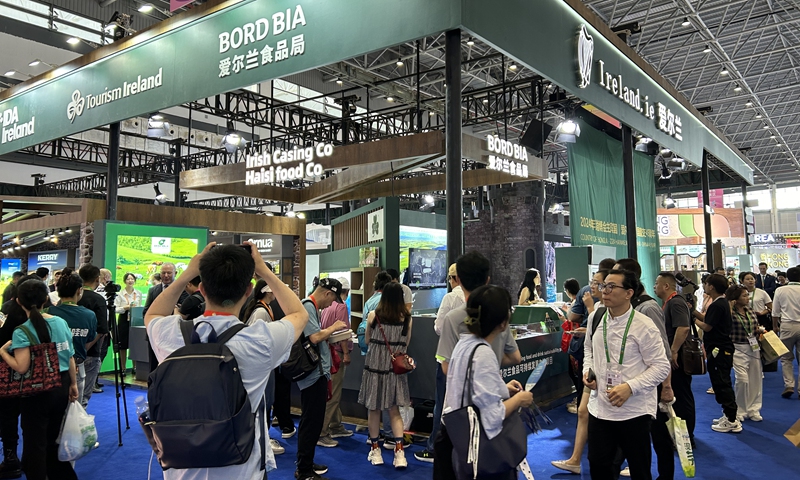Reported US ban on Chinese software in autonomous cars only harms global cooperation: experts
Confidence remains as China’s growth potential to be released

An autonomous driving minibus runs on a road in Yuhang District, Hangzhou City, east China's Zhejiang Province, May 22, 2024. The autonomous driving bus route in Yuhang District is the first one of its kind powered by vehicle-road coordination technology in Hangzhou. This 5-kilometer bus line winds through schools, industrial parks, residential compounds and subway stations, free of charge for all citizens.(Photo: Xinhua)
A reported US proposal to ban Chinese software in autonomous and connected vehicles in the coming weeks would only harm the sector's global development, Chinese observers said on Monday. They urged the US to seek win-win cooperation with China rather than bearing the potential development losses by suppressing Chinese companies through generalizing the concept of "national security."
The reported plan reflects growing concern over the rapid development of Chinese industries and Washington's clear attempts to restrain China for political reasons, Li Yong, a senior research fellow at the China Association of International Trade, told the Global Times on Monday.
Advancing the development of autonomous vehicles depends on global cooperation, as the sector has a relatively large ecosystem and high costs for research and development. If the US excludes Chinese companies, the move would delay the global commercialization of autonomous vehicles, said Zhang Xiang, secretary-general of the International Intelligent Vehicle Engineering Association based in the Hong Kong Special Administrative Region.
The Biden administration plans to propose a rule that would prohibit Chinese software in vehicles in the US with Level 3 automation and above, and effectively ban testing on US roads of autonomous vehicles produced by Chinese companies, Reuters reported on Sunday.
Washington also plans to propose barring vehicles with Chinese-developed advanced wireless communications modules from US roads, and automakers and suppliers would need to verify that none of their connected vehicles or advanced autonomous vehicle software was developed in a "foreign entity of concern" like China, according to the Reuters report.
Zhang told the Global Times on Monday that the US and China complement each other's strengths in the sector, as US firms can quickly and economically obtain advanced technologies from China, while Chinese companies are able to expand their market share with increasing profits. He said that Chinese enterprises are catching up with the US in terms of the technological development of autonomous driving.
This latest effort by the US to ban specific Chinese products comes less than three months after the Biden administration announced its decision to impose additional tariffs on China-made electric vehicles, which Li said serves the same purpose of hindering China's development.
Li said that the US move toward "decoupling" from Chinese software in autonomous and connected vehicles, where China holds competitive advantages, will ultimately backfire on its own industrial development.



